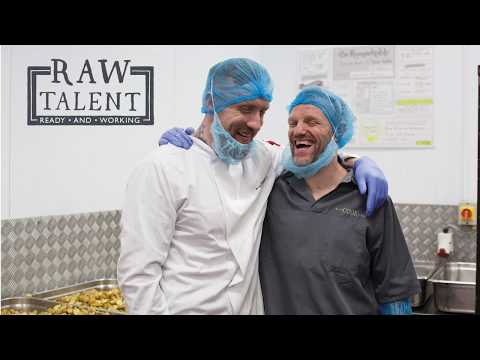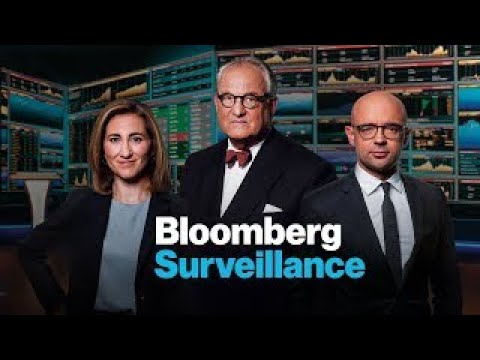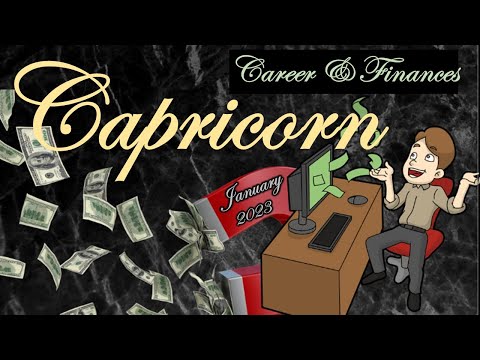How COOK Places Relationships at the Heart of Their Business

Hello. Hello thank, you so much for having me, it's, really great to be here and had. You know spending a day talking about happy workplaces and leadership is my idea of a really good day at work, and. A couple of weeks ago is chatting, to someone about leadership, and. What it is and how there's often so much ego, associated. With, the word and. We were kind of riffing on what actually leadership, was and we thought well perhaps all, it is is, actually people who are willing to stand for something and that's irrespective. Of where they are in the hierarchy. So. He turns to me and he says so. As a leader what do you stand for and I'm like oh no like let's talk about other people it's. Much easier to talk about other people and. But. He kept pushing the point and in, the end I think where I got to and why I'm here today is, what I really stand for his relationships, in business. And. By that I mean the potential, of sort of powerful human connection, to, create great workplaces, and, deliver great performance, as well. And. It cook we've seen time and time again how. Great. Relationships. Have driven performance, and in the benefit of hindsight sometimes. You go oh that was great strategy, or that was great product development, or that was great marketing, but. Actually when you scratched the surface nearly. Always it's, a group of people working really well together and the route of success is in relationship. And. Maybe that should be no surprise because. When you go back to, the very origin, of the word company. It. Comes from two Latin words and, we're all fluent in Latin right, I thought. So so, two. Words. Come. Meaning. With and, panas, meaning, bread so. The very origin, of the word company, is rooted. In people coming together over food and is, rooted in relationship. And. It feels to me when we look at sort of 21st, century, corporate, working culture we've forgotten that, essence. Of relationship, at the heart of it and. Actually if you google, the phrase relationships. At work you. Get a whole load of HR forints, talking about how to stop people shagging, in the stationery, cupboard. You. Know this is not a conversation, we're having work, we and. Just. To clarify those aren't the kind of relationships, I'm going to talk about some, sort of crushing. Disappointment. Say. The relationship so I'm going to talk about, the. Countless, everyday connections. We have with our colleagues the. Interactions. That enable us to get meaningful work done or. Not to. Help fill our contribution. Is recognized, and appreciated, or. Not. You. Know can, we see where the, workplace is more than just a paycheck or. Not and. These, relationships the thousands, of interactions, that ultimately, add up to what we refer to as our company culture, and. What I hope to do today is just to convince you to go back and. Look at your organization's. Through a relational, lens, because, I believe, when we really start to look at things through that lens it, can help us to see what's. Working and why and also. Importantly, what's not. So. Some of you know Kirk, judging. By the show of hands which is cool so. A little bit about us with we're a frozen, food business and we do to really. Unfashionable. Things we, make stuff like. We manufacture. We cook stuff the, other unfashionable, thing we, do is we have shops, real, life shops on the high street we've got 90 of them and. We've got an e-commerce business, home. Delivery. You. Know and as the introduction said our family's statement was to cook using the same techniques and ingredients that, you use at home. So. And, that's kind of what we've stuck to over over, the course of 21 years, and. We. Now have sort of 500, people cooking, we have 500 people working retail we've, got HQ, logistics, home delivery so we've got a workforce of about 1200, and it is a wildly, diverse. Workforce. Which. Is you know I think part of our richness, as a culture, and. The idea about relationships. Has been at the heart of kur ever since the beginning and these were the founders, of cook. Edie. Is my brother, on the right push. Public school boy. Dale, is a, brilliant, chef on the left from. The East End of London and grew up in and out of care homes there. Is nothing, to connect these people, on the, surface of it. Different. Ages, wildly, different backgrounds, and yet somehow they found a really powerful. Trusting. Relationship. That, founded a business and the, roots of Kirk are. In relationship, and I find it really interesting that, as we've grown coke we've had loads and loads of. Advice. On how to scale profit, and how, to scale shops and how to scale manufacturing we've, had very very little advice, on how. To scale our relationships, and, our culture, and.
I Think that's why so many people end up with a hierarchy. Which, doesn't, value relationship. Because. I think it's the easy option. And. You know I think leaning, into relationships. And working with humans and our egos could be a messy challenging, business. But. I'm just want to give you two arguments, why we need to keep persisting with. It, the. First reason, is that, all the evidence tells, us that relationships, are a fundamental. Human need, and the cornerstone, of well being and. They, also happen to be the greatest predictor of human happiness so. The longest running study of happiness ever. Is the, Harvard grant study it's taken seven decades and its, conclusion, is really, clear which, is our sense of happiness and fulfillment, across a lifetime, depends. On the warmth of our relationships, with others and so. On the basis we spend more time at work than anywhere. Else, it. Seems to me that our organizations. Have to pay attention to this fact if we want people. To thrive. This. Is John and Rene, and. At Kirk as was mentioned we run a scheme, to help people with barriers of employment, back into work and. These two guys, have. Real histories, and. Stories to tell which include addiction, spells on the street and spells in prison, and. What's been really interesting talking, to them as they say, the. Job is a, starting. Point and that's great but really, it's, the relationships, they've found at work it's the community, and it's the support that. Has helped get these guys back on their feet and both, are now thriving. So. Relationships help people to thrive and. The second, bit of evidence is that relationships, drive commercial, performance so. We. All perform at our best when, we're in a rich network of relationships, we, work harder, better more, creatively, and there's so much research from, like Google to Gallup to. Back that up and. I cook too we have a clear data link that. When a shop team have good relationships, with each other the, shop performs better and, it really is as straightforward as that for us. This. Is the team who, run our light-water store for years and. They. Have grown, the business year-on-year. On you in declining footfalls, in challenging, times. And. They've. Go out in the community they engaged the community every, single one of them contributes, to the success of that shop they all know their place in the team and. They. Have it is the relationships, that exists between them that have driven the performance, so.
Relationships. Drive. Performance. I think, so. Those organizations we, need to pay attention because, they help, people thrive relationships. And they drive performance and, so I just want to quickly test that with, our own human, experience, now. I. Want you all to think of a great working relationship. This, is Kristin Jemima who have a great working relationship they. Were doing some yoga thing I have no idea what they're doing and. So. I want you each to think four great working relationship. Just for a minute. Something. That's really enabled you to thrive or really delivered great performance. What. I want you to do when I say is I want you to turn to the person next to you and I want you to share the experience, of that relationship, and how it, made you feel and, then, I'll kind of yell after two minutes and we'll swap over, okay. So, two minutes, to. Your partner about, why, you chose that relationship, how it made you feel. Right. Can, some of you just shout out some, of those words about, how good relationships, make us feel we're, gonna write them on a flip just. A word. Trusted. Great. Respected. Sorry. Understood. Speed. It up. Supported. Appreciated. Any. Others. Energized. Yeah good word. Nice. Awesome. One more. Say. Cool. So. We're going to repeat that exercise and. I, want you to think of a dysfunctional working, relationship, either now or, in. The past and, I, want you to think about how, that relationship. Makes. You feel so. Try and talk to someone different. If, you can at, your table, but. Share your experience, and how that working. Relationship made, you feel for two minutes then I'll call out swap, over and. Then we'll do the same again okay, there's. A lot of energy in the room for bad working, relationships, right, let's. Have some words how poor or dysfunctional, work relationships, makes feel. Frustrated. Yeah. Mistrustful. Toxic. Yeah. Miss. Mistrustful. Toxic. Angry. Sorry. Self-destructive. Sorry. Faithful. Faithful. Bass. Sorry. Yeah. Powerless. Okay. Thank. You so I think the question that I'm, posing and, I'm asking, is do we want to, build. Organizations. Where our driving energy is, trusted. Respected, understood, empowered supported appreciated. Or we try to build organizations. Where. Our driving energy is frustrated. Mistrustful, toxic. Angry. And I think our, company cultures, are just the sum of all, of these relationships, and interactions, so. How can we make those as healthy as possible and. I just want to share some things that we do at cook, to. Do that, first. Off we approach relationships. In the business the same way we approach commercial, strategy, with like serious, intent, yeah, that's really important, and.
There's Lots we can do as individuals to, have better, working relationships but I'm not actually talking about that today I'm talking more about what organizations. Can do and. The, structure, that surrounds it and this. Lady's a wonderful lady called Elizabeth Levias, who we, worked with a few years back to create a model for big relationships, and and. So. I'm just going to share that with you and where, we got to is our. Big relationships model is relationships. In the workplace need, three key things to have really great working relationships. They, need a common purpose they. Need clarity, and they, need appreciation. And I'm just going to talk through those, three things, so. I'm going to start with common purpose. So. We all want to believe in what we're doing right, and. We all want to unite behind something we can get behind a my. Definition, of a really tough gig is trying to unite a team if the only person that team is to make more money I mean yay you know that's not grace for anyone so we need authentic, purpose. For. Who we're working with. And. So, for the people team at perk some of you may hear today it, might be about serving. Everyone who. Joins our cook family for, our finance, team it might be about providing brilliant, information, to help us make better decisions, at, a company, level we. Have purpose. About nourishing relationships, might, spot, the link there but. When relationships, are faltering when things get tricky, when there's a strong common purpose you've always got something to come back to that, you can then build from and it stops some of that he-she, you. No no come on we're both trying to do this how can we move forward so. Common purpose is really important, and, then also having some time, to get inspired about. Connect. With others that we're working with and. Have. Some time together to get inspired by that so. This is the logistics, team. Every. Summer we have something called free range of people days and every, team goes out to the free range of people day hang out in a year and a field in nature, and, connects, and gets inspired by what we're trying to achieve together and. By what each team is trying to achieve separately. Together, so. That's the free range people days. This. Is Naomi and Hannah who run are who. Run the puddings floor. And. This, was our coach collective event which Henry joined us actually, this year where, we take 200, team leaders, manage, shop managers, out, of the business for two days, to connect reflect, on why we're doing what we're doing and. To become better leaders and managers and, how, we can lead relationships, so, we take a look take do a lot to take people out of the day job to give them that time to. Inspire, and connect. This. Is a, day, where, we took we shut our shops for the day and we took everybody, on a Caribbean cruise down the Thames this is actually onboard about, which.
Was An absolute blast to say thank you and again connect get inspired by what we're trying to achieve. So. It's like taking you through my family photo album this but. Relationships need a common purpose and, they need time for connection, so united, we stand. Once. We're united we then need clarity and I. Think, when there's a purpose you really. Believe in you really want to contribute to it so right I know what we're trying to achieve how can I use my skills and, my contribution. To. Contribute. And I think we're all motivated to, some extent by autonomy, and. Having, clarity, releases. All of that potential and contribution. So. Clarity is really important, how does it relate to relationships. Right I want. To show of hands, for. Anyone who. Has wanted to kill as she won't say kill were nice guys let's say anyone who's wanted to gently maim a colleague. For. Stepping. On your toes, replying. To an email that was yours taking. Credit for your work put, your hand up if you've experienced, any of these, got. Frustrated, over a gray area not, being able to move forward an idea because you don't know who owns it okay. So, thank, you so, many relationship. Issues are just straightforward, caused. By lack of clarity when. There's lack of clarity politics. Sets in I don't, know if I don't want to talk about politics, today but, no me. Neither. So. Two quick things we do around clarity. We. Do. It's. Already been talked about role, design is so important, I'm, not interested, in big job descriptions, but I am really interested in whether we can articulate, what a role does, in. One, or two sentences and communicate, that clearly and. So, we avoid those roles you know those roles that kind of report. Into five teams they, do 36, different admin tasks, you don't really know what they do they don't really know what they do you. Know those roles just really. Clear well design, second. Thing we do is really, clear planning so we co-create, a plan every year it goes to all. 1,200, people at cook and every, year it says we're going to have a successful year if we do these, three things we have between eight and ten things as a company, we, are going to achieve alliances are strategies so there's a total clarity, on. Both individual, contribution, and where we're going and the, third and perhaps most important. Thing I'm going to talk about united. We stand behind a common purpose clarity. On where we fit in and I'm going to talk about appreciation. And. I couldn't do a talk on relationships. Without. Referencing. The greatest, relationship. Of all time don't. Know if you know what the greatest relationship or time is, it. Is of course, Kate. They, are the greatest relationship or time and, here they are and I'm including them because, there's a moment in the film where. They're sat on the deck of the Titanic and. They're, talking about Jack's. Drawings, and Rose, turns, to Jack and she says you have a gift Jack you, see people and he, turns back to her and he says I see you and, what happens in that moment is they both see each other and. It's from that moment there that their relationship, really blossoms. And. And. Their short romance blossoms. But. At work - we want to be seen we. Want to be appreciated. For what we're bringing to the party and. That in turn makes, for better relationships. So. We're always trying to find fun ways to get people to connect at work these are two of our London shop managers. In. A kind of photo booth, thinking. Who clearly, love each other a lot which is great. But. As organizations. I think we can act - by appreciating, where our workforces, are meeting the needs of those, in our organizations. So. In our kitchen, and after speaking to people we run lots of workshops on, we, have English workshops, we have an Eastern European. Workforce. We, have run brexit, clinics because that's been a real challenge to some of them and the uncertainty, that that's causing. We. Do financial well-being workshops. Mental. Health confidence, workshops, because that's where the need is and that's what matters to people. Likewise. We have a hardship, fund, because. We definitely don't want people going to the loan sharks. Elsewhere. To support people. We. Have a holiday home because when you're on the living wage affording, a family, holiday. Can, be a real stretch. We. Have something called the dream Academy which, is. Life. Coaching. Program. Which is four months and it a lot of people who come and work for us don't have a lot of education, haven't had a lot of input and, this is a program to really help people identify what, their life goals and dreams are and then to help them achieve it, we've.
Had Some lovely stories, so people are you know having better relationships with their stepchildren with. Someone's dream someone. Learned to drive. Better. Teeth. Buying. A first flat, but. I think the point is when we tune in to the needs that exist in, our teams and our organizations. And then, we go and meet that need, people. Feel appreciated and. That feels positive relationship. So. Individual. Team. And company level when, we have common purpose, we, have clarity, on our contribution, and we, appreciate. And feel appreciated, by those we're, working with we're well on the way to good, working relationships, so. I just want to close by, sharing Damian's, story. Mrs.. Damian he's a brilliant chef really, keen amateur photographer and, an, incredibly, kind human being and he's been very kind and letting me share his story today and he lives a lane and Sittingbourne he doesn't have family nearby, and. He lives with mental, health issues and. Last year those issues spiraled, and became a serious, threat his life and. At. Work we have a be part of the family value which is about looking after each other looking out for each other and mucking in where necessary. And. When Damian got very seriously, ill, what the kitchens team did between them was, they organized a router so, that Damian got visited, he got supported, he got contacted. And. I really believe it was their kindness and compassion that. Means Damian is still with us today, he's. He's well on the road to recovery and, he's back at work and it's fantastic, and. So as an image it also feels right I thought I'll finish, with one of Damian's photos and. This is one of his pictures. He took recently of a sunrise on the on the, Kent coast and I hate the kind of symbolism of the new dawn a Damian isn't lost on you either, but. I think it's a brilliant story to illustrate why workplace relationships, really matter. And. It's been the case since people first started forming companies as, we went back to companies, forging relationships with, each other over bread, and I, think we're all in a position where. We can reject. The established, corporate system, and. Lean into the messiness and challenge of creating great, relationships, in our organizations. They. Deliver great workplaces, and great performance, and. If we all get on board there maybe we can genuinely have a new dawn for our workplaces.
2019-12-01 08:18


